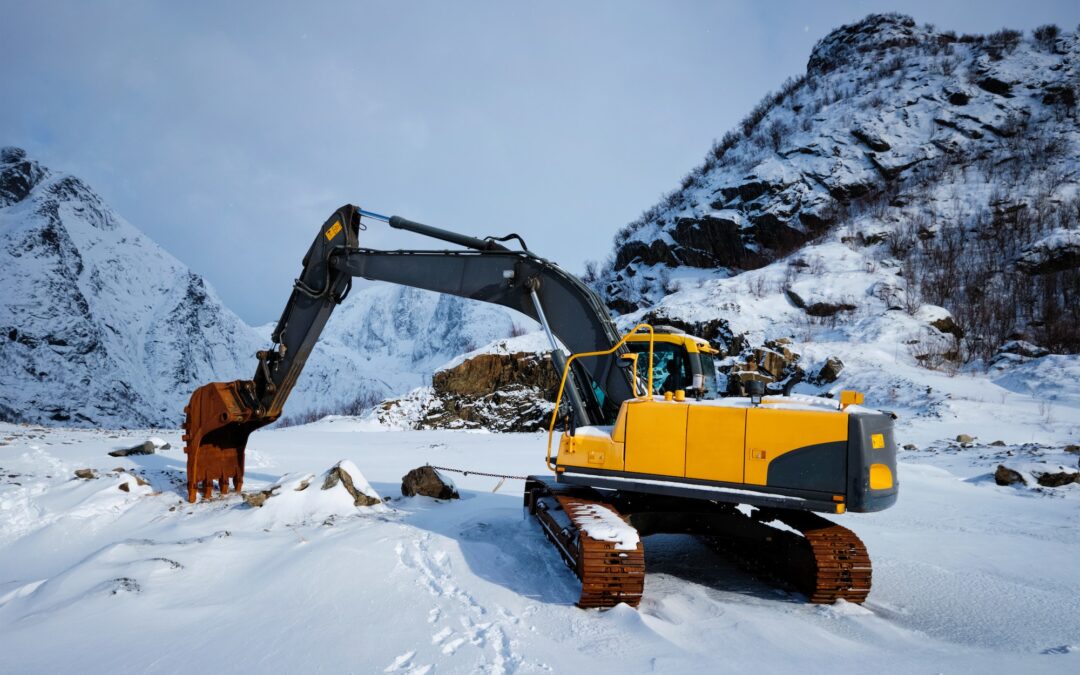Excavators are essential pieces of equipment used in a wide range of construction projects. Moving these large and heavy machines can be daunting, so it is important to have the right knowledge and equipment for the job. In this guide, we’ll provide tips and best practices for transporting excavators safely and efficiently.
1. Choose the Right Equipment
When it comes to transporting an excavator, you’ll need the right equipment for the job. Depending on the size and weight of your excavator, you’ll need a heavy haul truck and trailer, as well as the proper rigging and tie-downs. It’s important to have the right equipment to move your excavator safely and securely.
If you are transporting an excavator over a long distance, you may want to consider a flatbed truck or trailer. This will provide extra stability on the journey, and also prevent any additional wear and tear on the excavator itself. Make sure the flatbed is the right size and weight for your excavator, and that it is secured properly with straps, chains, and other tie-downs.
2. Inspect the Excavator
Before transporting your excavator, it is important to conduct a thorough inspection. Check to make sure that all parts are in good working order, and that everything is secure and properly fastened. Look for signs of wear and tear, and make sure all components are in good condition. If the excavator is too worn or damaged to transport safely, consider repairing or replacing the affected components before transporting it.
In addition, make sure to check the fluids and fuel levels before transportation. This will ensure that the excavator is running smoothly and efficiently during the move. Finally, check the tires for any signs of damage or wear, and make sure they are properly inflated.
3. Secure the Excavator Properly
Once you have all the necessary equipment and have inspected the excavator, it’s time to secure it properly for the move. Start by making sure the excavator is properly fastened to the flatbed truck or trailer. Use chains, straps, and other tie-downs to ensure the excavator is held firmly in place. Make sure the chains and straps are properly adjusted, and that all components are securely fastened.
In addition, it’s important to make sure the excavator is properly balanced on the truck or trailer. This will help prevent any damage or wear during the move. If the excavator is too heavy, consider using additional tie-downs to help secure it in place.
4. Check Local and State Regulations
Before you transport your excavator, be sure to check local and state regulations. Depending on the size and weight of your excavator, you may need to obtain a special permit for the move. Make sure to check with your local government to ensure you are in compliance with all regulations.
It is also important to check for any road closures or construction work that may affect your route. This will help you plan your route accordingly and ensure a safe and efficient move. Finally, make sure to check the weather conditions before you depart to ensure you are traveling in safe conditions.
5. Get Insurance
When transporting an excavator, it’s important to have the right insurance coverage for the move. Make sure to purchase the right insurance for your excavator, and ensure that it is valid for the duration of the move. This will protect your excavator and provide you with peace of mind in the event of an accident or other unforeseen circumstances.
In addition, make sure to get liability insurance for the move. This will cover any damage or injuries that may occur due to your actions or negligence. Make sure to speak with your insurance provider to ensure you have the right coverage for your move.
Conclusion
Transporting an excavator can be a difficult and daunting task. By following the tips and best practices outlined in this guide, you can ensure a safe and efficient move. Be sure to choose the right equipment, inspect the excavator, secure it properly, check local and state regulations, and purchase the right insurance coverage for the move.
For more information on transporting excavators and other heavy equipment, check out Heavy Hauler, a reliable and experienced heavy equipment transportation company.

